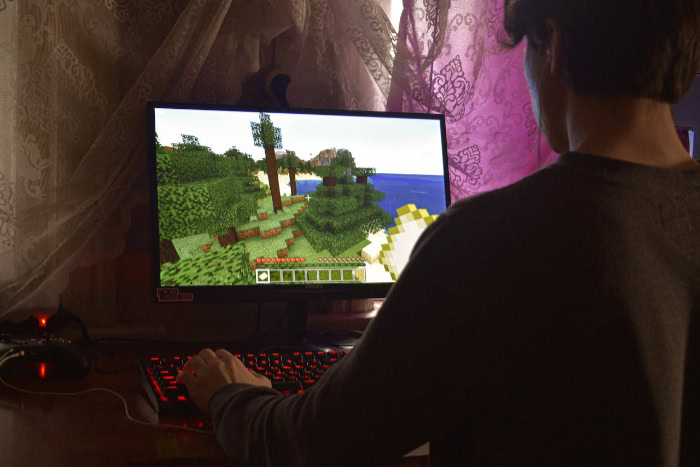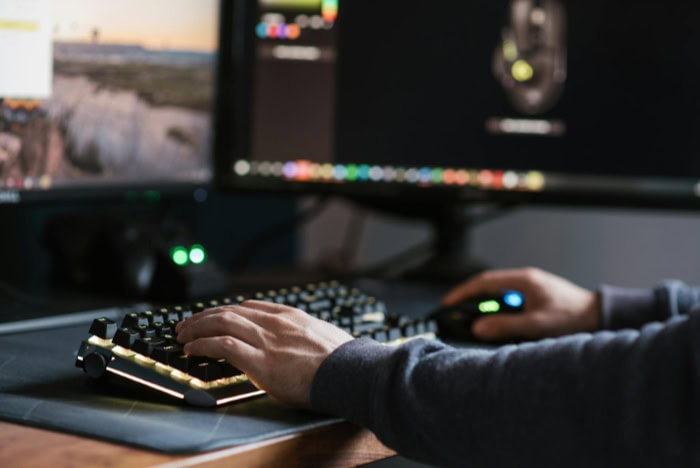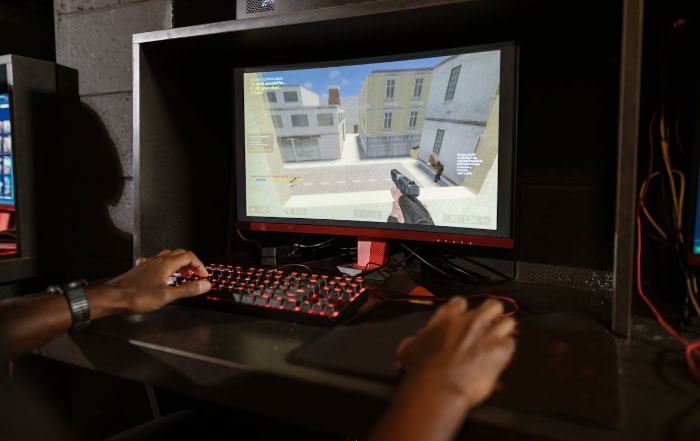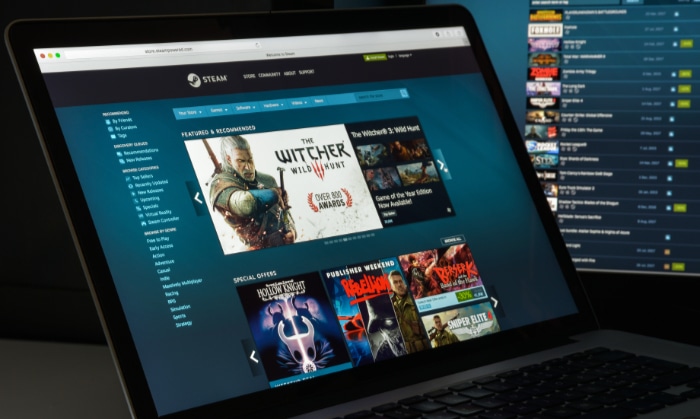What Are Mods In Video Games? Everything Explained

Mods transform the games we play, turning familiar experiences into something entirely new. From simple cosmetic tweaks to complete gameplay overhauls, these user-created alterations are a massive part of gaming culture, particularly on PC.
They can extend a game's life, fix lingering bugs, and even give rise to entirely new genres. For players, mods offer nearly limitless replayability; for creators, they are a platform for unbound innovation; and for the industry, they are a powerful source of community engagement.
What Is a Mod?
A mod, short for modification, is any change made by a player or fan that alters a video game's original content. These user-created projects vary enormously in scale and purpose, offering everything from minor adjustments to complete transformations of the base game.
They represent a fundamental way for communities to interact with and reshape the games they love, long after the original developers have moved on.
Defining the Scope of Mods
The term “mod” covers a vast spectrum of user-generated content. At the simplest level, a mod might be a cosmetic change, such as a new skin for a character, a different color for a weapon, or an improved texture pack that makes the world look sharper.
Other mods focus on quality-of-life improvements, like refining the user interface or fixing persistent bugs the official developers never addressed. On the other end of the scale are total conversions, ambitious projects that use a game's engine and assets to build an entirely new experience, sometimes shifting the genre from a first-person shooter to a real-time strategy game.
Mods, DLC, and Patches
It is important to distinguish mods from official game updates. Patches are updates released by the developer to fix bugs, adjust game balance, or improve performance.
Downloadable Content, or DLC, is also created by developers and serves as official expansions, adding new story chapters, characters, or gameplay modes, often for a price. Mods, by contrast, are created by the community.
They are typically distributed for free through dedicated websites and platforms like the Steam Workshop. While developers create patches to solve problems and DLC to add sanctioned content, modders create content for the passion of the project, to fill a perceived gap, or to experiment with a game's potential.
Mods Across Platforms
The practice of modding is most widespread on the PC. The open nature of the personal computer allows users easier access to game files, which is necessary for creating and installing modifications.
This has fostered a deep and long-standing culture of modding on the platform. On consoles, the environment is far more restrictive; closed operating systems and strict certification processes make it nearly impossible for users to alter game files directly.
However, there are notable exceptions. Some developers have created official systems to allow a curated selection of mods on consoles, with games like The Elder Scrolls V: Skyrim and Fallout 4 being prominent examples of this managed approach.
Types of Mods

Mods can be grouped into several broad categories based on their purpose and the extent to which they change the original game. Some offer simple aesthetic adjustments, while others fundamentally alter the gameplay experience.
These categories help players find the specific kinds of alterations they want, from minor enhancements that polish the base game to ambitious projects that deliver entirely new adventures.
Cosmetic and Quality-of-Life Mods
Many mods focus on improving a game's presentation or user experience without affecting its core mechanics. Cosmetic mods alter the look and sound of a game; this can include anything from high-resolution texture packs that make environments more detailed to new skins that change a character's appearance or custom sound effects for weapons.
Quality-of-life mods address annoyances or inconveniences in the original design. Examples include mods that streamline a cluttered user interface, improve inventory management, or add useful map filters.
Unofficial patches also fall into this category, as they are community-driven efforts to fix bugs and performance problems left behind by the official developers.
Gameplay and Content Mods
This category includes any mod that adds new playable material or adjusts the rules of the game. Some mods introduce minor gameplay tweaks, such as rebalancing weapons to make combat more challenging or adjusting economic systems to be more forgiving.
Others add substantial new content, like unique items and equipment, custom-designed maps, or new quests complete with original characters and storylines. More advanced gameplay mods may overhaul enemy artificial intelligence to make opponents smarter and less predictable.
Randomizers are another popular type, shuffling the locations of key items and enemies to provide a completely new experience for each playthrough.
Overhauls and Total Conversions
The most ambitious mods are overhauls and total conversions, which significantly rework or replace a game's original structure. An overhaul targets a game's fundamental systems; a combat overhaul might replace the entire fighting system with new mechanics, while a survival overhaul could add hunger, thirst, and temperature management to a game that lacked them.
Total conversions go a step further, using the original game’s engine as a foundation to create an entirely different game. These projects often feature completely new stories, settings, assets, and even shift genres, transforming a fantasy role-playing game into a science-fiction epic, for example.
How Mods Work: From Creation to Distribution

The process of bringing a mod from a creative idea to a functional download involves several distinct stages. Creators use specialized tools to build their projects, package them for public use, and distribute them through community platforms.
Successfully using mods also requires an awareness of how different alterations interact with one another and with the base game itself.
Creation Toolchains
Mods are built using a variety of software tools that allow creators to access and alter a game's files. In some cases, game developers actively support their modding communities by releasing official toolkits, often called Software Development Kits or SDKs.
These kits may include level editors for building new maps, scripting tools for changing game logic, and applications for importing custom models and textures. When official tools are not available, dedicated communities will often reverse-engineer their own, creating unofficial frameworks that open up the game for modification.
These toolchains are what empower modders to do everything from tweaking a single line of code to designing entirely new game systems.
Packaging and Distribution
Once a mod is complete, it must be packaged and shared with the public. Modders typically compress their files into an archive for easy downloading and installation.
Distribution happens through centralized community hubs and platforms. Some of the most popular are dedicated websites like Nexus Mods, which host files for thousands of games.
Other platforms, such as the Steam Workshop, are integrated directly into a game's launcher, allowing for simple one-click subscriptions to mods. Responsible mod authors also practice versioning, labeling their releases with numbers to track updates.
This practice helps users ensure they have the latest bug fixes and features, and authors often provide changelogs detailing what is new in each version.
Compatibility Fundamentals
Using multiple mods at once can introduce technical complexities. A primary concept is dependencies, where one mod requires another to function correctly.
For example, a mod that adds a new animated creature might depend on a separate animation framework mod. Another critical factor is load order, which is the sequence in which the game loads each mod's files.
If two mods alter the same game asset, the one that loads last will take precedence. Managing this load order is essential for preventing conflicts and crashes.
Furthermore, mods must remain compatible with the base game, and official game patches released by the developer can often break existing mods, forcing authors to update their creations to align with the new version of the game.
Using Mods: Installation and Management

Actively using mods requires more than just finding one you like and clicking download. To ensure a stable and enjoyable experience, players need to know where to find reliable content, how to install it correctly, and what to do when things go wrong.
Proper management is the foundation of a successful modded playthrough.
Finding Reputable Sources and Understanding Policies
The first step in modding a game is to find trustworthy sources for content. Large, well-established community hubs like Nexus Mods or the integrated Steam Workshop are generally the safest places to download mods.
These platforms have active user bases and moderation that help filter out malicious or broken files. Before downloading, it is crucial to read the mod's description page thoroughly.
Authors usually provide installation instructions, list any dependencies on other mods, and detail potential conflicts. Reading the changelog and user comments can also offer valuable insight into a mod's quality and stability.
Additionally, it is wise to be aware of the game developer's official policies on modding, as some games prohibit mods in online multiplayer to prevent cheating.
Installation Basics
There are two primary methods for installing mods: manually or with a dedicated mod manager. Manual installation involves directly placing the mod's files into the game's data folder.
While this approach works for one or two simple mods, it becomes difficult to manage and troubleshoot as you add more. Mod managers are specialized applications that automate the installation and uninstallation process.
These tools keep mod files separate from the main game files, making it simple to activate, deactivate, and reorder them without permanently altering the game's directory. Many mod managers also support profiles, which allow you to save different lists of active mods for separate characters or playthroughs, helping you maintain a stable setup for each one.
Troubleshooting
Even with careful management, issues can arise when using multiple mods. Troubleshooting is a common part of the modding process.
Conflicts often happen when two or more mods attempt to change the same game asset, which can lead to crashes or unexpected behavior. Fine-tuning the load order, which is the sequence in which the game loads each mod, can resolve many of these conflicts.
Specialized tools can help identify conflicts and even suggest a correct load order automatically. Before installing a new mod into an ongoing game, it is essential to create a backup of your save files.
A mod conflict can corrupt a save, potentially wiping out hours of progress. A safe rollback strategy involves adding one mod at a time and testing the game, which makes it much easier to identify the source of a problem should one appear.
Benefits, Risks, and Impact

The practice of modding has a profound effect on gaming, reaching far beyond the individual player's experience. It creates value for communities, influences the direction of the industry, and introduces a unique set of challenges and limitations that both creators and users must consider.
Benefits and Community Value
One of the most significant benefits of a healthy modding scene is greatly extended replayability. New quests, items, and gameplay mechanics can give players a reason to return to a game years after its release, keeping classic titles relevant long after their initial launch.
Mods also provide crucial accessibility gains, with community-made additions often offering features like improved subtitles, colorblind-friendly interfaces, or remappable controls that the base game may lack. This allows more people to enjoy the game comfortably.
Beyond individual enhancements, modding fosters vibrant, creative ecosystems. These communities become collaborative spaces where players share feedback, report bugs, and work together on ambitious projects, generating a powerful sense of shared ownership over a game's legacy.
Industry and Cultural Impact
The influence of mods extends into the professional game development industry and the wider culture of gaming. Some of the most popular genres today began as community projects for existing titles.
A modification for a real-time strategy game, for instance, can lay the groundwork for an entire new category of competitive multiplayer games. Developers sometimes recognize the brilliance of a mod and officially incorporate its features into their game or even hire the creators to work on commercial projects.
In several influential cases, a popular mod has been developed into its own standalone commercial game, demonstrating a direct path from fan-made content to commercial success and shaping the direction of game design for years to come.
Risks and Constraints
Despite the advantages, modding is not without its risks and limitations. There are legal boundaries to consider, as a game's End User License Agreement (EULA) may prohibit certain types of modifications.
Using intellectual property from other franchises, such as adding characters from a popular film into a game, can create legal complications, especially if the modder attempts to monetize their work. Security is another concern; downloading files from untrustworthy sources can expose a user's system to malware.
Finally, there are practical performance and stability trade-offs. A game loaded with numerous mods may suffer from lower frame rates, increased loading times, and frequent crashes, requiring players to carefully manage their mod lists to avoid corrupting their save files or making the game unplayable.
Conclusion
Mods are user-generated alterations that fundamentally reshape the way games are experienced. They range from simple visual enhancements to ambitious total conversions that build new worlds on an existing foundation.
These creations extend the life of a game, giving players endless reasons to return, while also building active communities dedicated to creative expression. The impact of this work is significant, with fan projects sometimes inspiring new genres or becoming successful commercial titles in their own right.
For anyone interested in trying mods, a cautious start is the best approach. Begin with games known for their stable and well-documented modding scenes.
Always download from vetted community sources and use a mod manager to handle installation and load order. Starting with a few well-regarded cosmetic or quality-of-life improvements provides a safe way to learn the workflow.
Once you are comfortable with the basics, you can then move on to more complex gameplay overhauls and large-scale content additions.


